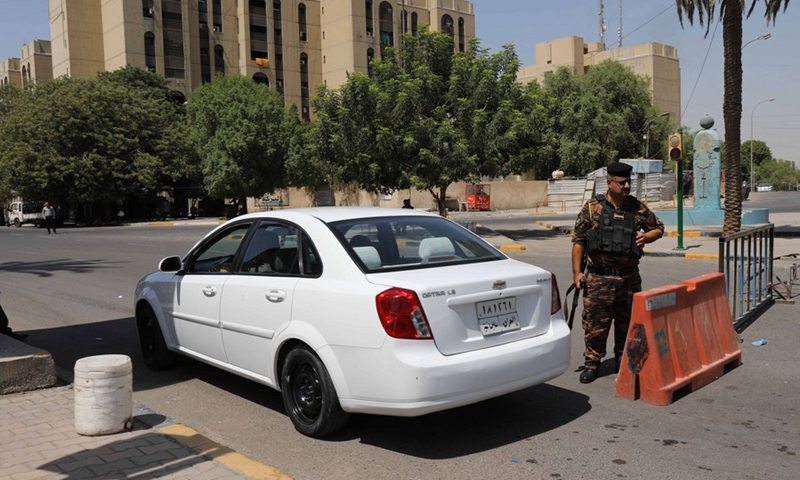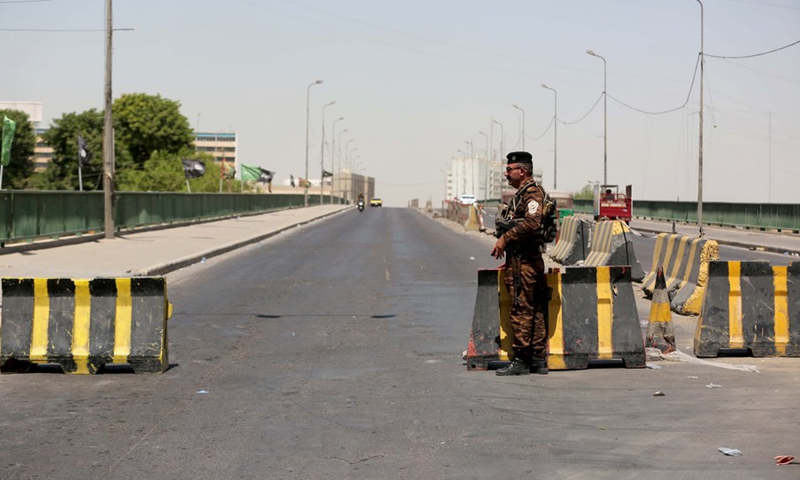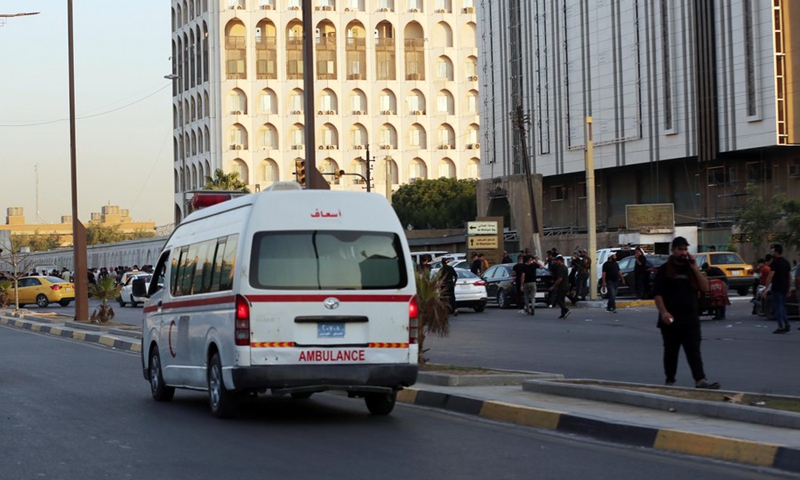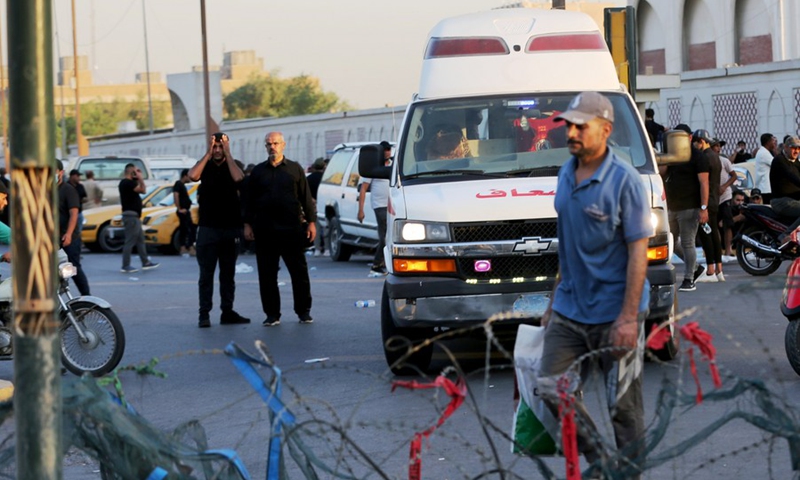
An Iraqi guard stands at a security checkpoint before the government's announcement to lift the traffic ban in Baghdad, Iraq, on Aug. 30, 2022. (Photo: Xinhua)

An Iraqi guard stands at a security checkpoint before the government's announcement to lift the traffic ban in Baghdad, Iraq, on Aug. 30, 2022.(Photo: Xinhua)

Al-Sadr's supporters gather outside government buildings in Baghdad, Iraq, on Aug. 29, 2022.(Photo: Xinhua)

An ambulance transports injured protesters to a hospital in Baghdad, Iraq, on Aug. 29, 2022.(Photo: Xinhua)
Iraqi prominent Shiite cleric Moqtada al-Sadr on Tuesday called on his followers to end their protests and withdraw from the Green Zone in Baghdad, after clashes killed 22 people and wounded more than 200 others.
At a televised press conference in the Shiite holy city of Najaf south of the capital of Baghdad, al-Sadr apologized to the Iraqi people affected by the violence, stressing that he was hoping for peaceful protests, "not bullets and bombs."
He called on his followers to "withdraw in 60 minutes," including from the sit-in in front of the parliament, or he "will not recognize them."
Immediately after his speech, the Iraqi Joint Operations Command (JOC) said in a statement that "it was decided to lift the curfew in Baghdad and the provinces."
A security source from the Interior Ministry told Xinhua that following his speech, Sadr's supporters began withdrawal from the Green Zone, which houses main government offices and some foreign embassies, while armed militiamen began to gradually disappear from the capital's streets.
Four rockets were fired on the heavily fortified Green Zone overnight after al-Sadr resigned from politics on Monday, sparking protests by his supporters in which up to 22 people were killed and more than 200 others were injured, the Iraqi military said on Tuesday.
The overnight clashes erupted between Saraya al-Salam, or Peace Companies, loyal to al-Sadr, and militiamen believed to be affiliated with al-Sadr's opponent from other Shiite parties.
On Monday, al-Sadr's supporters stormed some of the main government headquarters in the Green Zone following their leader's announcement that he was quitting politics in protest against the corruption of political parties in the country.
Political tensions in Iraq have escalated in the past weeks between al-Sadr and his rivals in the Coordination Framework (CF), an umbrella group of Shiite parliamentary parties.
On July 30, al-Sadr's followers broke into the Green Zone and held an open sit-in in and outside the parliament building, demanding the dissolution of the parliament and holding early elections, which are rejected by the CF parties.
The CF became the largest alliance in the Iraqi parliament after al-Sadr ordered his followers in the Sadrist Movement, the biggest winner of the Oct. 2021 elections with 73 seats, to withdraw from the parliament.
During the past months, the continued disputes among the Shiite parties have hampered the formation of a new Iraqi government, making it unable to elect a new president by a two-thirds majority of the 329-seat parliament under the constitution.
If elected, the president will appoint the prime minister nominated by the largest alliance in the parliament, now the CF, to form a new government that would rule the country for the next four years.
